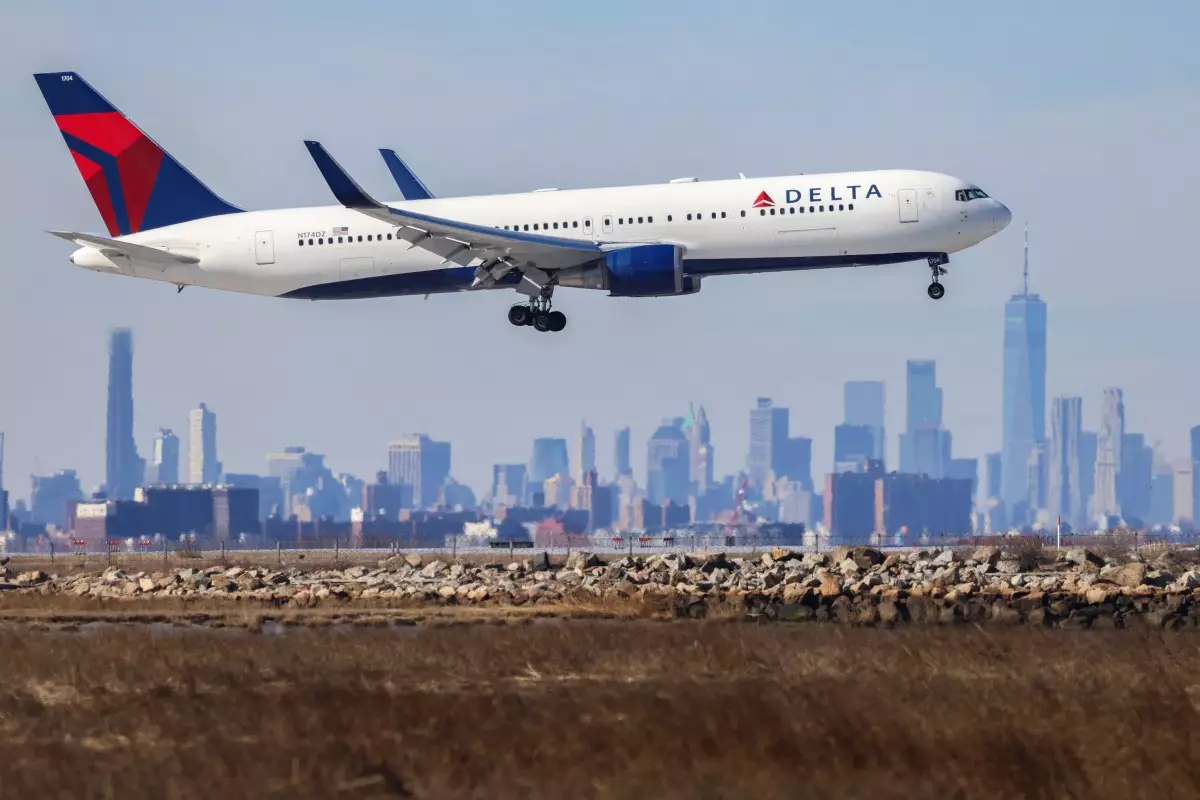In the rapidly evolving landscape of the airline industry, Delta Air Lines has made significant strides in enhancing passenger experience, with its presence at CES becoming a hallmark of innovation. This year’s showcase featured the company’s latest technological advancements, including a new AI assistant, upgraded in-flight entertainment, and complimentary digital services for loyal customers. However, while some of these announcements are indeed noteworthy, one must critically assess whether they truly represent pioneering moves or if they are simply reactions to industry trends.
At the center of Delta’s announcements at CES 2025 is the introduction of the Delta Concierge, an AI-powered assistant integrated into the airline’s mobile app. Passengers will soon have access to a digital companion capable of assisting them through voice or text interactions. While the promise of proactive advice and tailored notifications is appealing, one cannot help but feel that the technology is somewhat basic compared to existing advancements in artificial intelligence. In a time where AI applications are prevalent in various sectors, simply alerting travelers about impending passport expirations or offering basic directions seems like a standard requirement rather than a groundbreaking innovation.
Moreover, the functionality outlined, including destination-related updates such as local weather alerts, borders on the realm of common expectations. Travelers today anticipate more advanced and personalized interactions from tech solutions, which makes the Delta Concierge’s offerings appear, unfortunately, a tad lackluster. The real challenge for Delta will be to distinguish the AI assistant from the myriad of existing services that provide similar functionalities, rather than merely meeting the baseline expectations of tech-savvy travelers.
Delta’s second major announcement pertains to its in-flight entertainment (IFE) system, touted as the “first cloud-based” option. Set to debut in 2026, this system promises state-of-the-art 4K HDR displays, Bluetooth connectivity, and expansive onboard storage capabilities. However, industry observers might notice that these features are not necessarily revolutionary in the context of the competitive airline landscape. Rivals like United Airlines have already incorporated similar technologies into their fleets, raising the question of whether Delta is merely catching up rather than leading the charge in inflight entertainment innovation.
Furthermore, while Delta’s commitment to enhancing passenger media consumption is commendable, the real focus should shift toward integrating unique, branded experiences that can truly differentiate the airline’s offerings. For instance, the challenge lies not only in updating display technology but also in curating content that resonates with passengers and enriches their travel experience. Merely rolling out new technology without compelling content or experiences may lead to disappointment among frequent flyers who have come to expect more from their carriers.
Innovative Ideas or Pipe Dreams?
In addition to these main announcements, Delta hinted at future collaborations with Airbus regarding the fello’fly project—a concept aiming to enable aircraft to fly in formation, optimizing fuel efficiency akin to how geese navigate in flocks. While this initiative presents an intriguing vision of sustainable aviation practices, the multi-faceted regulatory and logistical hurdles make it a complex challenge to implement. This highlights a broader issue within the aviation sector: companies often showcase exciting visions that may not materialize in the near future, leading to skepticism among aviation analysts and consumers alike.
Overall, Delta’s presentations at CES 2025 showcase a combination of strategic initiatives and cautious advancements. While the Carnival of technological announcements captivates the audience, the underlying sentiment leans toward apprehension about whether these advancements will truly disrupt the travel industry or merely serve as catch-up strategies. Thus, as Delta Air Lines marches forward in this competitive landscape, it must challenge itself to transcend conventional expectations and deliver innovations that genuinely enhance the travel experience. Only then will passengers come to view Delta not just as a participant in the industry, but as a pioneering force leading the way into the future of air travel.

